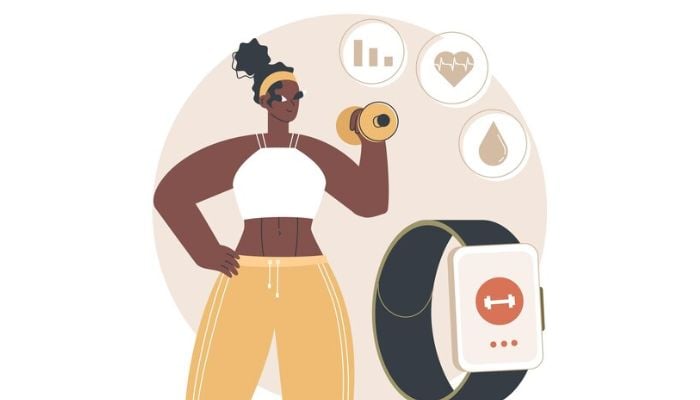
Apple Watch, the acclaimed wearable gadget, isn't just a sleek accessory, it's supposedly a beacon of hope for those pursuing healthier lifestyles. But let's not get too starry-eyed. The burning question on everyone's lips: Can you trust the Apple Watch's calorie counter? Well, let's dissect the reality behind this tech fantasy.
Apple Watch calories tracker: Does it even work?
Wearable activity trackers (WATs), particularly the Apple Watch, reign supreme as a fitness crutch for many. Sure, they might nudge you to saunter an extra 40 minutes daily but don't bet your broccoli on their calorie-counting precision. The science behind these gadgets suggests they're merely "moderately accurate" at best.
UniSA's research sings praises about WATs encouraging more footwork and consequent weight loss. Yet, their accuracy regarding calorie counting is as dubious as the daily weather forecast. Dr Brian Quebbemann, the voice of reason, labels these trackers as good trend spotters rather than precise calorie wizards. They might decipher if your sprint today outpaced yesterday's jog but struggle when comparing diverse activities like push-ups to cycling.
Apple Watch, adorned with a plethora of features from emergency services calls to noise alerts, pitches its calorie-counting prowess. It hinges on data like heart rate, movement, and your vitals. But here's the rub: it's no clairvoyant. It takes stabs in the dark, relying on your statistics and a sprinkle of algorithmic magic to project your energy expenditure.
Read more: Apple Watch SE vs 8: Which one should you get?
Sure, a 12-week study champions the Apple Watch's calorie predictions, waving the flag of accuracy. Yet, remember, it's not a flawless oracle. In the battle against calorie counting, it's more like a rookie gladiator trying to find its footing in an arena of metabolic complexities.
Let's address the elephant in the room: the "calories in, calories out" principle. Science points fingers at the messiness of digestion, painting a picture where food labels lie about caloric content as shamelessly as a con artist in a heist flick.
This discrepancy between expected and actual calorie intake can be a staggering 25%. That's a dice roll between weight loss and a burgeoning waistline.
Final verdict
Apple Watch might be a valiant sidekick but don't bestow it with superhero status. It's not infallible. When lifting weights, it won't divine how many calories you're burning based on the dumbbell you're curling. You've got to spoon-feed it that data.
Want better results? Fine-tune your watch like a musical instrument. Calibrate it, ensure your Health app is fed accurate details, and move your arms less robotically than C-3PO.
In conclusion, the Apple Watch is not really a beacon of unwavering accuracy in the risky waters of calorie counting. It's more of a guide and a companion. So, Apple Watch users, pay attention to these tips and take calorie counts with a pinch of low-sodium salt. After all, in this digital age, even our gadgets have their limits.
















